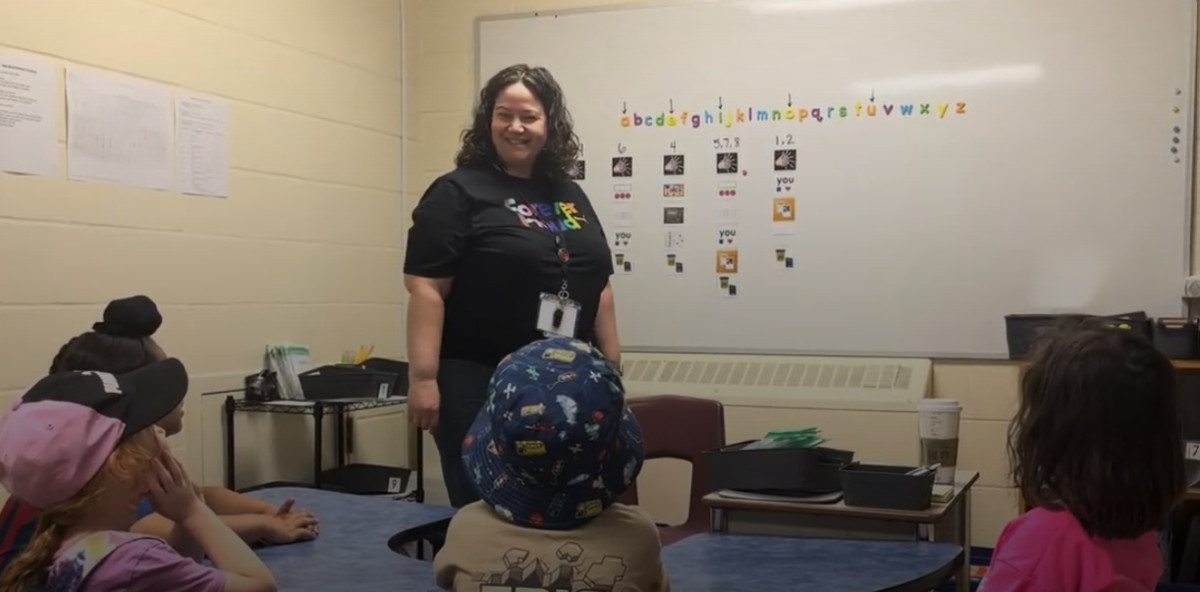
Waterloo Region District School Board
Introduction: From Report to Response
When the Ontario Human Rights Commission’s 2022 Right to Read report found that Ontario’s public education system wasn’t meeting the needs of many students—especially those with reading disabilities—leaders at the Waterloo Region District School Board (WRDSB) took notice.
The report called for a fundamental shift in how reading is taught and assessed. Waterloo’s board recognized that the seismic change the report called for would require a long-term, system-wide commitment. Still, it knew this change couldn’t wait.
So, the Board got to work.
Solution: A System-Wide Plan with Real-World Support
Waterloo responded quickly. It brought together educators, specialists, and school leaders to unpack the report’s 157 recommendations. The result was the Board’s Multi-Year Structured Literacy Plan (MYSLP). The plan was an ambitious roadmap to reshape how students learn to read across the region.
Along with the literacy plan, the Board formed five committees focused on early screening, instruction, reading interventions, accommodations, and assessments. These teams included voices from teaching, special education, speech and language, and psychology. As the work evolved, the Board aligned these efforts under a framework called the Multi-Tiered System of Supports (MTSS).
That multi-tiered framework ensures every student gets the level of instruction and support they need. Tier 1 offers strong, research-based instruction for all students. Tier 2 provides small-group support for students needing more help. And Tier 3 delivers intensive, individualized intervention for students with significant needs.
But Waterloo knew frameworks wouldn’t create change alone. The Board needed on-the-ground support during implementation to overcome two key challenges:
First, encouraging educators to go beyond the provincially mandated single literacy screening to adopt the Right to Readreport’s twice-annual recommended screening. It was also crucial that the Board help educators understand how to use the screening data to drive changes in instruction.
Second, ensuring all Kindergarten to Grade 2 educators were equipped to confidently and consistently deliver Tier 1’s research-based instruction to all students.
Meeting the Challenge with Smart, Scalable Solutions
Waterloo’s board addressed these challenges by giving educators research-backed tools and support. In 2022, the Board piloted Acadience Reading, a research-based screening tool that could give educators clear and actionable data with 38 part-time Reading Resource Teachers (RRTs). It also embedded these RRTs into schools to support educators directly.
The pilot was a success. Teachers quickly discovered how twice-yearly screening helped them teach more effectively and drove students' reading skills and confidence.
The Board expanded the pilot the following year. More than 650 educators voluntarily joined the next phase. They screened over 9,000 students in Kindergarten to Grade 2, and the Board gave participants follow-up training on how to interpret and apply the data in the classroom.
Waterloo’s board grew the program again in 2023. This time, it trained an additional 400 educators and screened more than 13,000 students at the start of the school year. Participating educators screened over 11,000 students a second time mid-year, even though only some of those students were required for a second screening under the provincial policy.
The message was clear: educators valued the data because it was helping students succeed.
“Now that the students are comfortable with the routines for Tier 2 and teachers have run their own Tier 2 groups, they are feeling confident that they can keep it going even after I leave,” said one Early Reading Resource Teacher.
Results: A Culture Shift with Measurable Impact
The shift in Waterloo Region District School Board has been both cultural and measurable.
In Fall 2023, the district’s educators screened 98% of students in Kindergarten to Grade 2. By mid-year, they screened 87% again, including many students who had already met the required benchmarks. Why? Because educators saw the value. They were using the data to guide their instruction, and it was working.
“With [our Early Reading Resource Teacher] guiding us, this is the best professional development I’ve had in my career so far,” said one Waterloo teacher. “I hope the ‘higher ups’ know how valuable [the ERRTs] really are to classroom teachers!”
“I feel like I won the lottery to have been in the program,” shared another teacher. “Working alongside a literacy specialist was so valuable professionally and personally.”
Students are feeling the change, too. “I loved learning all the vowel sounds,” said one student. “Decoding on the board really helped,” said another.
Administrators also recognize the impact.
“I’m absolutely blown away by how confidently students can sound out words,” one school leader said. “They’re remembering strategies like heart words. It’s magical.”
The Board’s investment in professional learning, peer collaboration, and structured instruction is creating transformative change for both teachers and students. More students are getting the right support at the right time. More educators feel confident and equipped in their practice. And across the district, early literacy outcomes are improving, building a strong foundation for every student’s lifelong success.